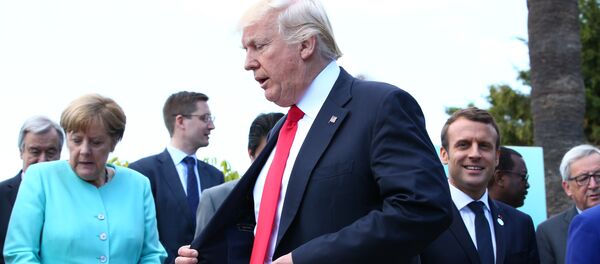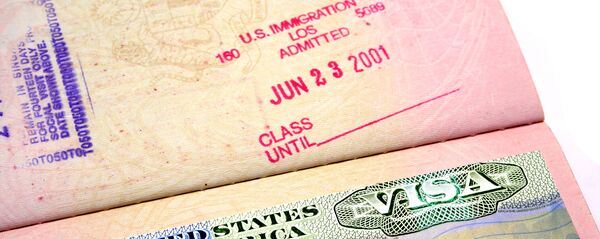Radio Sputnik discussed this new procedure with Dan Cadman, a former US Immigration and Customs Enforcement official who is currently a fellow with the Center for Immigration Studies.
“If we look back to a couple horrendous terrorist attacks in the United States, one of them in Orlando and one in Saint Bernardino California, you may or may not recall that the men in each of those incidents, the perpetrators, were second generation immigrants born in the US but their wives were born abroad,” Cadman said.
“The kind of social media vetting that is now proposed, if it had been undertaken back then, neither one of those women who had been permitted into the US would have entered because their social media accounts would have exposed them as having radical ideas,” the official said.
Talking about why social media vetting was not used before, Cadman said that under the Obama administration it couldn’t be used because by law such personal information could only be asked for if the person was under investigation.
However, Trump’s administration has now “closed that loop,” the official said.
According to Cadman, social media vetting could be very effective. In the future it will probably be conducted by consular workers or homeland security employees.
“There would be additional training conducted in order to be thorough with what they do,” he said.
Social media vetting has been around for some time now, according to the official. “The employers of various companies have been using it to check up on whom they are hiring for decades now,” he said.
However, Cadman said that it is possible that not everyone will be asked for such information and not everyone will be denied entry just because they made an innocent mistake about their past information.
“Consular officials and immigration officials have vast experience in dealing with people and particularly with people from various countries so they will get a reasonable idea of who they are dealing with, but they are looking for the most evident clues,” the official said.
He further said, “This new rule might not be perfect, but it’s better than nothing.”
Cadman also said that while terrorism remains a reality of this age, visa rules would remain stringent in its procedures.
According to the State Department, under the new visa rules, officials will request social media information when they determine that it is required to confirm identity or conduct security vetting.
The new questionnaire was approved on May 23 by the Office of Management and Budget.




